Category: Uncategorized
M.Sc Nursing Pre-PG Entrance Examination on 29/11/2021 at 2:00-4:00 pm. Venu: People’s College of Nursing and research Centre Bhopal (M.P) and First Counseling On 1/12/2021 at 10:00 am onwards
On World Pneumonia Day awareness Program by People’s College of Nursing in Kurana Sub Centre Bhopal on 12 Nov 2021


College Level Counseling Started in People’s college of Nursing for B.Sc Nursing Course from 25- Oct- 2021
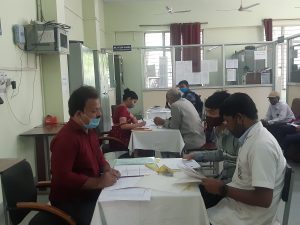
People’s college of Nursing Celebrated World Mental Health Day – October 10, 2021, Through Skit our Students explained Mental Health & Common Mental Problems and its Prevention in Gram Bandikhedi, Ratua, Bhopal (M.P)
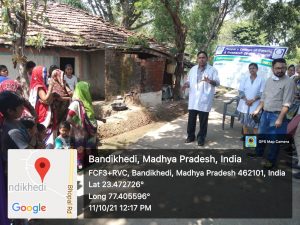
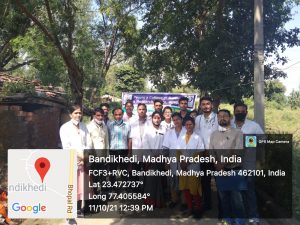

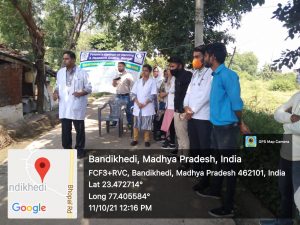
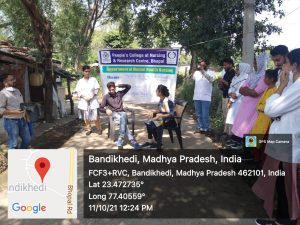
Events – Breast Feeding Week Celebration – 1St August – 7th August & Dehydration and its Management – 29/07/2021
| Title of Event | Date | Event Report |
|---|---|---|
| Breast Feeding Week Celebration | 1St August – 7th August | View Report |
| Dehydration and its Management | 29/07/2021 | View Report |
On 11th April 2021 INTERNATIONAL SAFE MOTHERHOOD DAY
On 11th April 2021 INTERNATIONAL SAFE MOTHERHOOD DAY was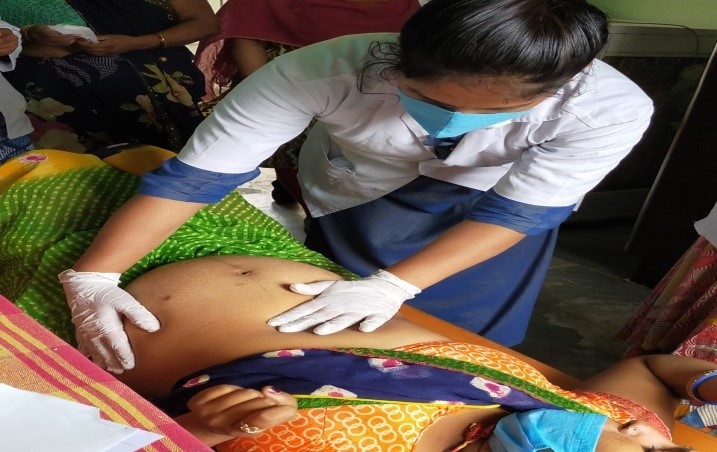 celebrated on the theme “ Want Safe childbirth, let’s go health centre” under the AEGIS OF SOMI, by, department of Paediatric and Obstetrical Nursing, Peoples College of Nursing & Research Centre Bhopal M.P.
celebrated on the theme “ Want Safe childbirth, let’s go health centre” under the AEGIS OF SOMI, by, department of Paediatric and Obstetrical Nursing, Peoples College of Nursing & Research Centre Bhopal M.P.
The theme based intercollegiate poem competition was organized through Microsoft team platform via Google form app. There were a total 39 students have participated from all institute of People’s University Bhopal. In that the first position was secured by Ms. Sonali Bairagi B.Sc. Nursing III year student, second position was secured by Ms. Priyanka Barke B.Sc. Nursing Ist Year student, and third position was secured by Ms. Richa Burnkar Bsc. Nursing III yr student.
On the occasion of safe motherhood day on 11/4/2021 interactive program with antenatal mother for preparation of safe motherhood and antenatal assessment was conducted at HWS centre Bhopal. The aim of the program was to improve maternal and prenatal health and reduce mortality and morbidity by improving quality care.

Following actives were conducted; –
- Complete health check-up and care of mother.
- Studying health problems of antenatal mother
- Provided health education to antenatal mother
- General information of programs or benefit which is provided by state government under the MCH program.
- Given education about maternal and child health service, which is supported by local governing authority.
- Providing health education to parents for taking care of children.
- Antenatal examination and identifying high risk pregnancy.
- Helping mother and other family members in planning the delivery.
In this total 13 women were assessed. Out of 13 antenatal mothers 3 were screened with high risk pregnancy.
The overall program was conducted by Mrs. Nitika Bhargav Asst. Prof. And Mrs. Seema Sahu Tutor of PCN & RC under the guidance of Lt Col Prof. Mrs Rekha Rani Gupta, Principal People’s College of Nursing and Research Centre Bhopal.
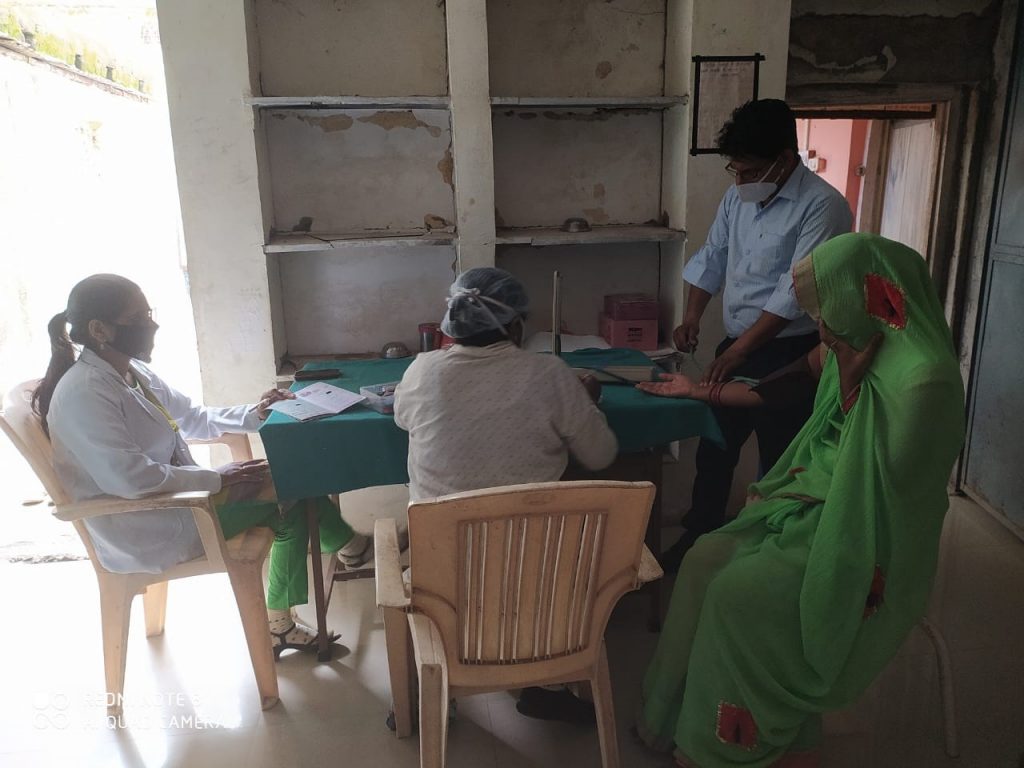
The Intersection of Biotechnology and Intellectual Property Law: Protecting Academic Innovations in Texas
Biotechnology is transforming industries, from healthcare to agriculture, with groundbreaking innovations emerging from academic institutions. In Texas, renowned for its robust research universities, these advancements are driving progress and sparking economic growth. But with innovation comes the critical need to protect intellectual property, ensuring that groundbreaking discoveries remain secure and benefit both creators and society.
Navigating the intersection of biotechnology and intellectual property law presents unique challenges, especially in academia. Researchers must balance scientific collaboration with safeguarding their work against unauthorized use. In Texas, where academic research often leads to commercial ventures, understanding the legal frameworks surrounding patents and licensing is essential for fostering innovation while protecting intellectual assets. Staying updated with institutional policies, such as those outlined in the UFM Notification 2025, can also help researchers remain compliant and informed.
This dynamic relationship between science and law is shaping the future of biotechnology in Texas, making it vital for researchers, institutions, and policymakers to stay informed and proactive.
Understanding Biotechnology And Intellectual Property Law
Biotechnology and intellectual property law intersect critically in academic settings, particularly in regions like Texas, where innovation thrives. Safeguarding biotechnological advancements ensures that academic efforts translate into societal and economic benefits. Additionally, understanding legal frameworks—from patents to property rights—is crucial, much like navigating ownership complexities in other sectors. For instance, this https://linxlegal.com/what-is-the-best-timeshare-exit-company/ offers insight into managing and exiting binding agreements effectively.
Defining Biotechnology And Its Applications
Biotechnology involves using biological systems to develop products or technologies. Its applications span healthcare, agriculture, energy, and environmental conservation. In Texas, academic research drives breakthroughs like gene editing, biofuels, and pest-resistant crops, impacting global industries.
Basics Of Intellectual Property Law In Academia
Intellectual property law refers to rights protecting creations like patents, trademarks, and copyrights. In academia, patents dominate as they secure discoveries, ensuring creators retain control. Universities in Texas often prioritize licensing agreements to monetize innovations effectively.
| Aspect | Biotechnology | Intellectual Property Law |
|---|---|---|
| Focus | Innovation in biological systems | Protection of ideas and inventions |
| Example Areas | Gene editing, renewable biofuels | Patents, licensing agreements |
| Academic Contribution | Research in healthcare and agriculture | Safeguarding academic discoveries |
Visit United States Patent and Trademark Office (USPTO) for detailed insights into protecting intellectual property.
The Role Of Intellectual Property In Biotechnology Innovations
Intellectual property (IP) secures the foundation for advancements in biotechnology, ensuring that innovations are legally protected while encouraging continued research and investment. Academic institutions in Texas have become pivotal in fostering groundbreaking discoveries through IP-protected research efforts.
Importance Of Protecting Innovative Research
Patents safeguard scientific achievements like genetically modified organisms, biotechnological processes, and pharmaceuticals. With a focus on academia in Texas, protecting such innovations ensures their societal and economic benefits while preventing unauthorized usage. Secured IP rights help incentivize funding and create sustainable innovation models within research institutions.
Trade secrets contribute significantly by protecting manufacturing techniques and proprietary knowledge crucial for maintaining competitiveness. Academic initiatives in gene therapy, renewable energy solutions, and pest-resistant crops gain longevity in development when confidentiality is prioritized.
Key Legal Frameworks And Policies In Texas
Texas follows federal guidelines for IP while leveraging state-specific policies to foster biotechnology growth. The Bayh-Dole Act allows institutions to claim rights on federally funded research, boosting licensing opportunities. Texas academic partnerships heavily use this for commercialization efforts.
Universities adopt strict IP management infrastructure to align with patent laws and licensing regulations. Key frameworks like the USPTO patent system act as a cornerstone for securing rights to biotechnological discoveries, ensuring compliance and innovation monetization. Visit USPTO’s official website for more on patent filing and protection.
Notable Biotech Patents and Sectors in Texas
| Patent Type | Application Area | Example Invention |
|---|---|---|
| Genetically Modified Organisms | Agriculture | Pest-resistant crops |
| Biopharmaceutical Patents | Healthcare | Novel gene therapies |
| Renewable Processes | Energy | Algae-based biofuels |
| Diagnostic Tools | Medical Technology | Advanced pathogen detection systems |
Texas remains a hub for translating IP-protected research into globally impactful solutions.
Challenges At The Intersection Of Biotechnology And Intellectual Property
Biotechnology’s rapid evolution presents complex challenges in applying intellectual property laws. Texas academic institutions balance innovation, commercialization, and ethical considerations, navigating a landscape fraught with legal and moral dilemmas.
Navigating Patent Laws In Biotech Research
Patent laws in biotechnology impose strict standards of novelty, utility, and non-obviousness. Researchers must address ambiguities around what qualifies as patentable, particularly with living organisms and genetic material. For instance, disputes over CRISPR gene-editing patents have shown the complexities of determining ownership rights for transformative technologies. Also, the high costs of obtaining and defending patents make IP protection inaccessible for some academic projects.
| Patent Challenges in Biotechnology | Description |
|---|---|
| Ambiguities in patent eligibility | Questions over patenting living organisms or genes |
| High costs | Expense of filing, maintaining, and litigating patents |
| Ownership disputes | Conflicts over ownership between institutions |
Explore more about patent criteria at the USPTO website.
Ethical Dilemmas And Academic Freedom
Biotechnology intersects with ethical issues, impacting how academic research proceeds. Conflicts arise when commercialization pressures restrict academic freedom. For example, licensing agreements may limit researchers’ ability to share data or collaborate broadly. Ethical concerns also emerge in biotechnological innovations like gene modification, requiring careful consideration of societal impacts. Balancing research openness with IP protections remains an ongoing challenge for universities, particularly in balancing public and private interests.
Opportunities For Academia In Texas
Texas provides a unique landscape for academic institutions in biotechnology research and innovation. With a robust biotechnology sector and growing collaborations, academia sees numerous opportunities to push the boundaries of discoveries while securing intellectual property to foster growth.
Collaboration Between Research Institutions And Industries
Academic institutions in Texas frequently partner with industries to enhance biotechnology research. These collaborations leverage industry expertise and resources while academia contributes groundbreaking research capabilities. As federal funding for research declines, industry partnerships play a critical role. In the US, approximately 64% of R&D funding originates from industry, underlining academia’s reliance on these collaborations for sustained innovation. This cooperation also simplifies translating research results into commercial applications, benefitting both parties and the public.
Success Stories From Texas Universities
Texas universities lead significant advancements in biotechnology while effectively managing intellectual property. For example, research teams at The University of Texas have patented advanced gene-editing techniques, bolstering medical treatments. Texas A&M University has filed biotechnology patents for pest-resistant crops, elevating agricultural productivity. Such patents help secure funding, protect discoveries, and promote statewide economic growth. These achievements highlight the integral role of intellectual property rights in bringing innovative solutions to market.
| Aspect | Contribution in Texas | Significance |
|---|---|---|
| Biotechnology patents | DNA sequences, genetic engineering tech | Encourages investment in R&D |
| Industry partnerships | 64% of US R&D funded by private sector | Supports academia financially |
| University innovations | Gene editing, pest-resistant crops | Improves healthcare, agriculture |
For more details on protecting intellectual property in biotechnology, visit the USPTO.
Strategies For Protecting Innovations In Academia
Safeguarding biotechnological innovations in Texas requires strategies that integrate intellectual property law with research processes. Academic institutions must balance the advancement of science with protecting discoveries to ensure societal and economic benefits.
Best Practices For Researchers And Institutions
Researchers and institutions in Texas benefit from adopting systematic IP protection practices. Filing patents early ensures exclusive rights over inventions like genetically engineered organisms or groundbreaking pharmaceuticals. Maintaining accurate records of experiments and research developments strengthens patent applications and supports defending IP rights.
Universities often use Material Transfer Agreements (MTAs) to regulate the sharing of biological materials while protecting proprietary information. Also, fostering strong industry collaborations under controlled licensing agreements ensures academic research can be commercialized effectively without compromising intellectual assets.
Leveraging Legal Resources And Support Systems

Texas researchers leverage federal and state legal frameworks to safeguard biotechnological advancements. The Bayh-Dole Act enables universities to commercialize federally funded research while retaining patent rights, encouraging both innovation and economic growth. Accessing resources like the United States Patent and Trademark Office (USPTO) supports patent filing and enforcement, reducing risks of IP infringement.
Legal support systems in Texas, including university technology transfer offices, offer researchers assistance in navigating complex IP laws. Organizations such as the Texas Biotechnology Industry Organization (BioTexas) help collaboration and provide guidance in enhancing biotechnology research while securing robust IP protection.
| Type of IP Protection | Key Benefit | Example Applications |
|---|---|---|
| Patents | Exclusive rights to inventions | Gene therapies, biofuels |
| Trade Secrets | Protects confidential processes | Manufacturing techniques, proprietary formulas |
| Licensing Agreements | Enables monetization of IP | Pharmaceutical innovations, pest-resistant crops |
For more detailed information on IP strategies, visit the USPTO.
Conclusion
The dynamic interplay between biotechnology and intellectual property law is shaping the future of innovation in Texas’s academic institutions. By fostering robust IP strategies, researchers and universities can protect groundbreaking discoveries while driving economic growth and societal progress. As biotechnology continues to evolve, understanding and navigating the complexities of IP law will remain essential for ensuring that academic advancements translate into impactful, real-world solutions. Texas’s thriving biotech sector stands as a testament to the power of collaboration, innovation, and effective IP management in academia.
National Science Day
National Science Day :27 February 2021! To flourish the occasion we had “Debate Competition “at university Level and Ms. Jasmine Rini John( B.Sc( N)- IV Year Represented our college at university.
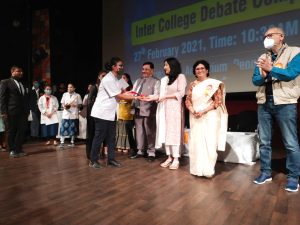
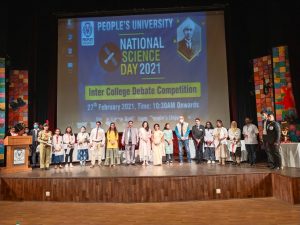
NEONATAL WEEK CELEBRATION MIDWIVES – A Change Agent
NEONATAL WEEK CELEBRATION MIDWIVES – A Change Agent
Date: 28th November || Time: 10am onwards

